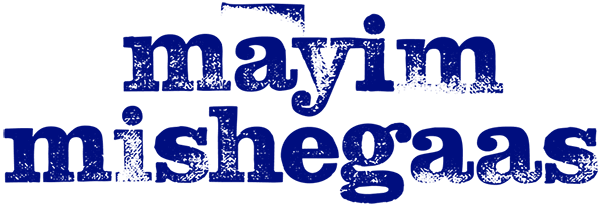
Miles Bialik Stone took a long time to start speaking. He used sign language and his very own made-up vocabulary for almost 3 years before he joined the ranks of the English speakers who raised him. Once he started talking, we found that Miles was very articulate and sensitive and loved explaining things. I used to have him dictate book reviews of his favorite children’s books we read for the homeschool newspaper when he was just 5 and 6 years old. He loves words and he loves communicating with others in any way he can.
Now 11 ½, Miles has a fondness for theater and science, LEGO, anything Star Wars and Harry Potter, and he has a wicked sense of humor. His Dad and I recently enrolled him in a rigorous grammar/writing class in our homeschool community and he has been challenged as a writer in ways that frustrate and delight him.
I sat down and interviewed my Firstborn about writing and he responded with a healthy dose of snark and wisdom. I hope you enjoy how this shook down!
MAMA: I wanted to ask you a few questions, Miles. There’s a day in the calendar called “Encourage a Young Writer Day” and I wanted to ask you a couple of questions about your writing class that you are taking.
MILES: Okay.
MAYIM: What is it called? It has initials, right?
MILES: I. E. W.
MAYIM: What does it stand for?
MILES: No idea.
MAYIM: [laughs] That’s cool, I can’t remember what it stands for either. So, what are the kind of things that you do in this class? What skills are you learning?
MILES: There’s a bit of grammar in it, but mostly it’s learning how to make a project [short essay] of a few paragraphs, but you can’t just put anything inside them [the paragraphs]; we actually decide what we are writing before we just start writing.
MAYIM: So do you mean that she’s trying to teach the structure of an essay made of paragraphs?
MILES: Yeah; so that you don’t just start writing randomly. [She teaches so that] you actually have a structure of what you do first, and then you take your “things” and start writing.
MAYIM: So what are some of the “things”? Is it some of the grammar things you are talking about?
MILES: Like the clauses?
MAYIM: Sure. Miles, pretend that people reading this don’t know what ‘grammar’ means. Tell them what your writing class teaches regarding grammar.
MILES: Oh, well, we’re sort of writing and taking…what do you mean?
MAYIM: What are some of the examples of grammar that you have to incorporate into your essay?
MILES: Well, there’s not much grammar.
MAYIM: Okay, this is not a very interesting interview. [Miles laughed at the mama sarcasm.] Come on. Tell me some of the things you have to fit into those paragraphs.
MILES: Oh, yes, yes. In certain paragraphs, we have to put a word that ends with -ly, and put a “who-which” clause which is like, who – and then you say something- and then a comma and the rest of the sentence. There’s also “openers,“ so paragraphs have to start with stuff like “as,” “since,” “although,” or “because” and we have to put ”strong verbs,” and quality adjectives.
MAYIM: What’s a strong verb?
MILES: A strong verb is a verb that is strong, so you use it instead of your standard verb.
MAYIM: What’s an example of a strong verb?
MILES: What do you mean?
MAYIM: Gahhhh!!! What’s strong about it?
MILES: It’s not a generic word.
MAYIM: Got it, so it’s like a special verb?
MILES: It’s a special verb that you wouldn’t use every day… unless you’re my teacher!
MAYIM: (laughs) Okay.
MAYIM: Why did your parents get so excited that you were taking this class?
MILES: Because they wanted me to struggle in it?
MAYIM: Very funny. We’ve talked a little about my parents, your Bubbie and Zaydie, who were both English teachers and were real sticklers for grammar. I was raised with a very strict old fashioned notion of learning proper grammar and proper writing. Part of the living that I make is as a writer now and I’m very grateful for all that training. Obviously this is a difficult class; what is difficult about it?
MILES: It’s hard because it’s hard to fit [all of the clauses and special words] in, and it’s also hard to think up what to do. There’s a lot of homework because every week we’re pretty much working on new paragraphs.
MAYIM: What does it feel like when you read a completed paragraph that has all of the clauses and all the adjectives and the adverbs that she asks for? Can you tell the difference between that and if you just tried to do it on your own?
MILES: Yes; it feels good that I finished… until she marks it over and finds all the mistakes!
MAYIM: (laughs) What kind of mistakes does she typically find?
MILES: She finds grammar mistakes. And sometimes there’s trouble or “banned” words that we have, like “see,” “saw,” “look,” those are bad and not used. She also banned “interesting” from me.
MAYIM: You mean if you use a word too much she takes it away, so that she forces you to find other words. Right?
MILES: Yeah; I’m using “important’ too much… somehow that will probably be banned!
MAYIM: (laughs) So for the writing project that you and I were working on together the other day which inspired this fascinating interview, you had to pick a topic and write a whole essay about it. And what did you choose as your topic?
MILES: I chose the brain, but really I chose to focus on the brain stem, the cerebellum and the cerebrum.
MAYIM: And what are some of the topics some of your classmates are doing?
MILES: One did whales, one did miniature horses, one did dinosaurs, one did Alexander Hamilton, one did Nelson Mandela, one did Civil War stuff.
MAYIM: So when we were working on your brain essay, you had a sentence where you describe the brain as “terrific.“ Do you remember what I said?
MILES: You said “I worked for a lot of years to get my PHD in neuroscience and ‘terrific’ is great for the brain but not for the way you are using it in.”
MAYIM: (laughs) What I said is that even though the brain is terrific, part of the challenge for you is to find specific words for what you mean. You are a very articulate speaker and a very articulate thinker, but writing is very different from speaking or even thinking! So that’s also why your father and I wanted you to take this class.
The other thing I said to you – and this ties into encouraging a young writer – is that there are a lot of different ways to write. There are poets like E.E. Cummings, who wrote without punctuation, for example, and people can do all sorts of things with their words. But learning the basic structure of grammar and the writing that you’re learning gives you a lot of freedom because once you have basic good grounding and structure, it gives you a lot of places to go from. So, Picasso didn’t just paint Cubism, he was a classically-trained artist who then was able to see other things that were out of the box. So that’s how I see it with writing: I want you to have all of that to build from.
MILES: Are you positive about that? Picasso?
MAYIM: Ahem. Yes, Miles. I’m positive that Picasso was a classically trained artist.
MILES: Yes, I guess I know that, okay. Never mind.
MAYIM: Also a love of grammar and structure in writing is very consistent with your father’s and my personalities. We’re both very persnickety and meticulous and detail-oriented, and people who tend to like grammar tend to be like that or people like that tend to like grammar! In any event, you seem to already have a lot of appreciation for things being right and not wrong in the world. And you like words so, we hope this IEW class is giving you an opportunity to like words more and to find new words and to find a way to express yourself in writing the same way that you accurately express yourself in spoken language.
MILES: Okay.
MAYIM: Do you have anything you’d like to add?
MILES: Not a lot.
MAYIM: Okay, would you recommend this class to other children?
MILES: I would recommend any I.E.W. or any other writing classes for children.
MAYIM: Oh…so it’s been positive?
MILES: Yes. Well, it’s hard work and you get frustrated a lot, but it’s fun.
MAYIM: Can you see yourself having some sort of career that involves writing at all? Or is this just a class that you feel like you need to do for now?
MILES: I feel like I should do it, so if I ever have to write stuff, I don’t sound like a seven-year-old writing a book.
MAYIM: Hmmm. Why are you being mean to seven-year-olds?
MILES: Okay, fine: uneducated people.
MAYIM: Why are you being mean to uneducated people?
MILES: (laughs)
MAYIM: I love you Miles, you’re done!




 Read More From Mayim
Read More From Mayim
Grok Nation Comment Policy
We welcome thoughtful, grokky comments—keep your negativity and spam to yourself. Please read our Comment Policy before commenting.